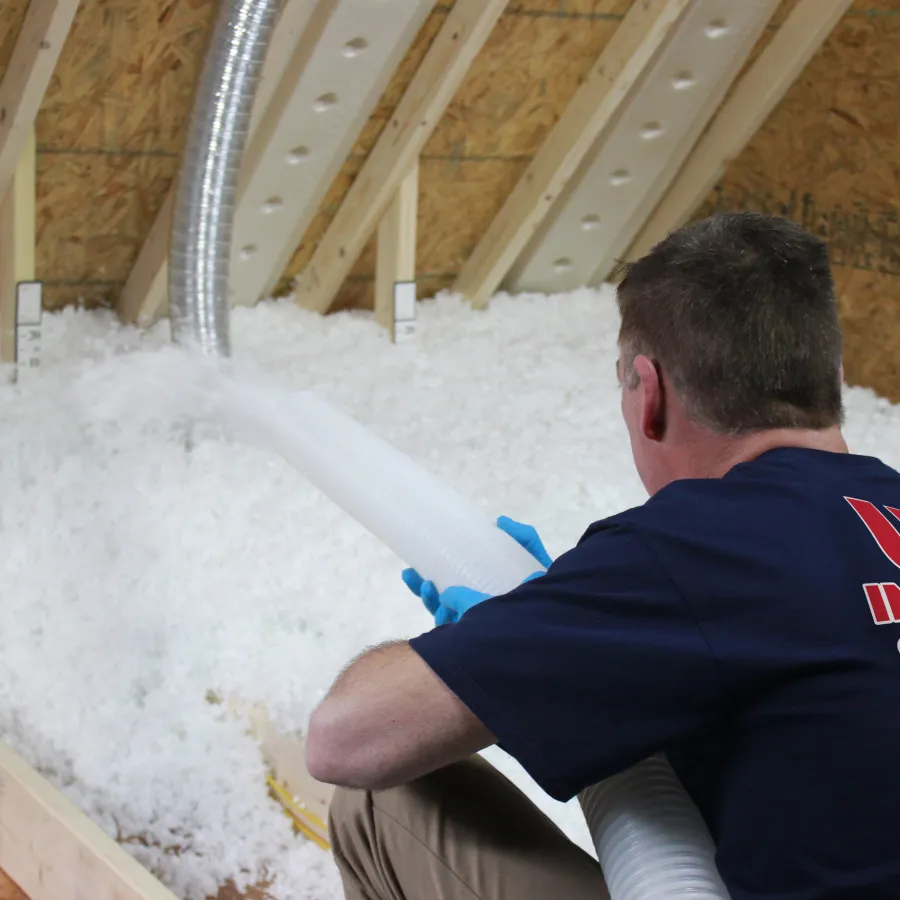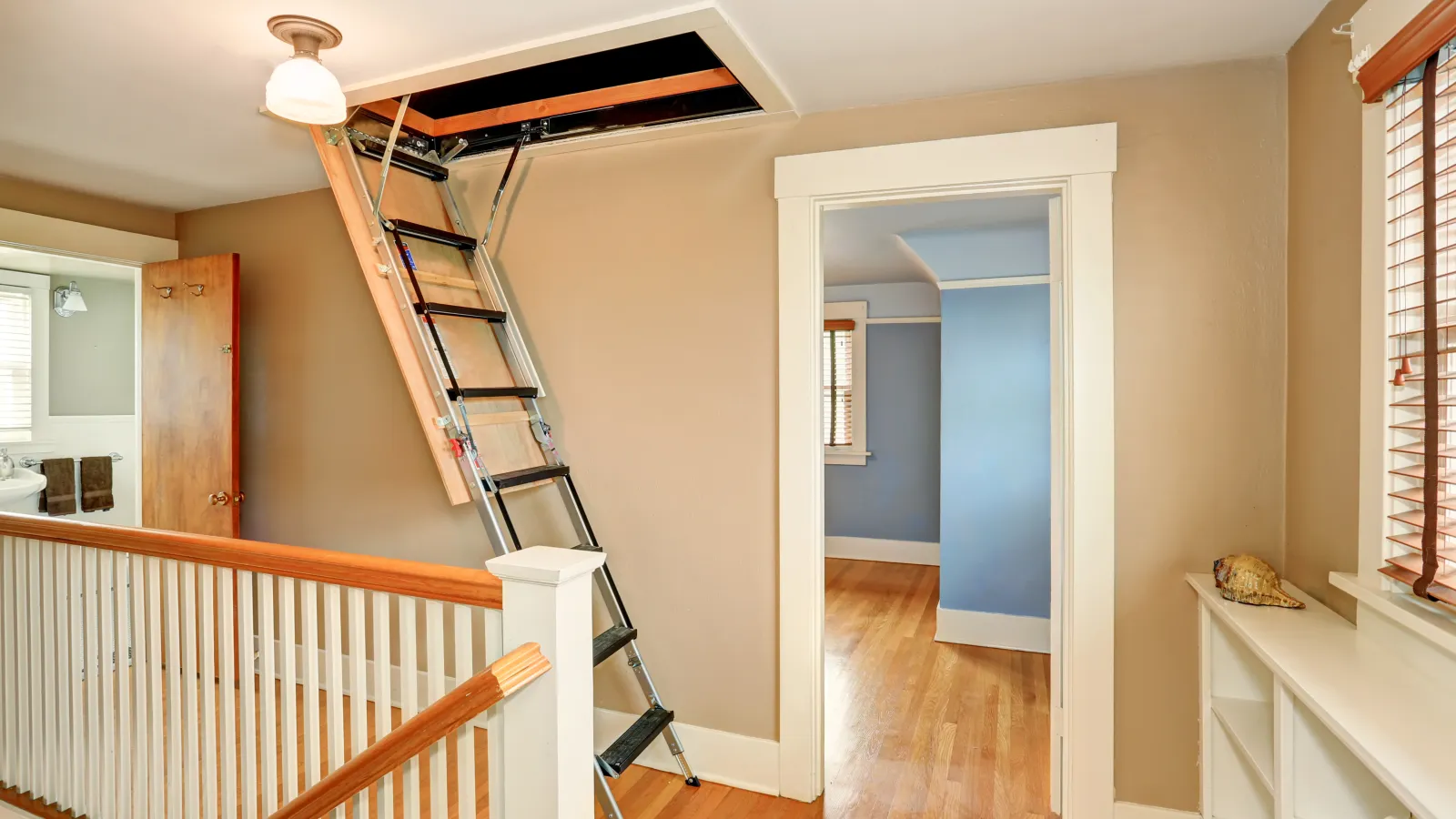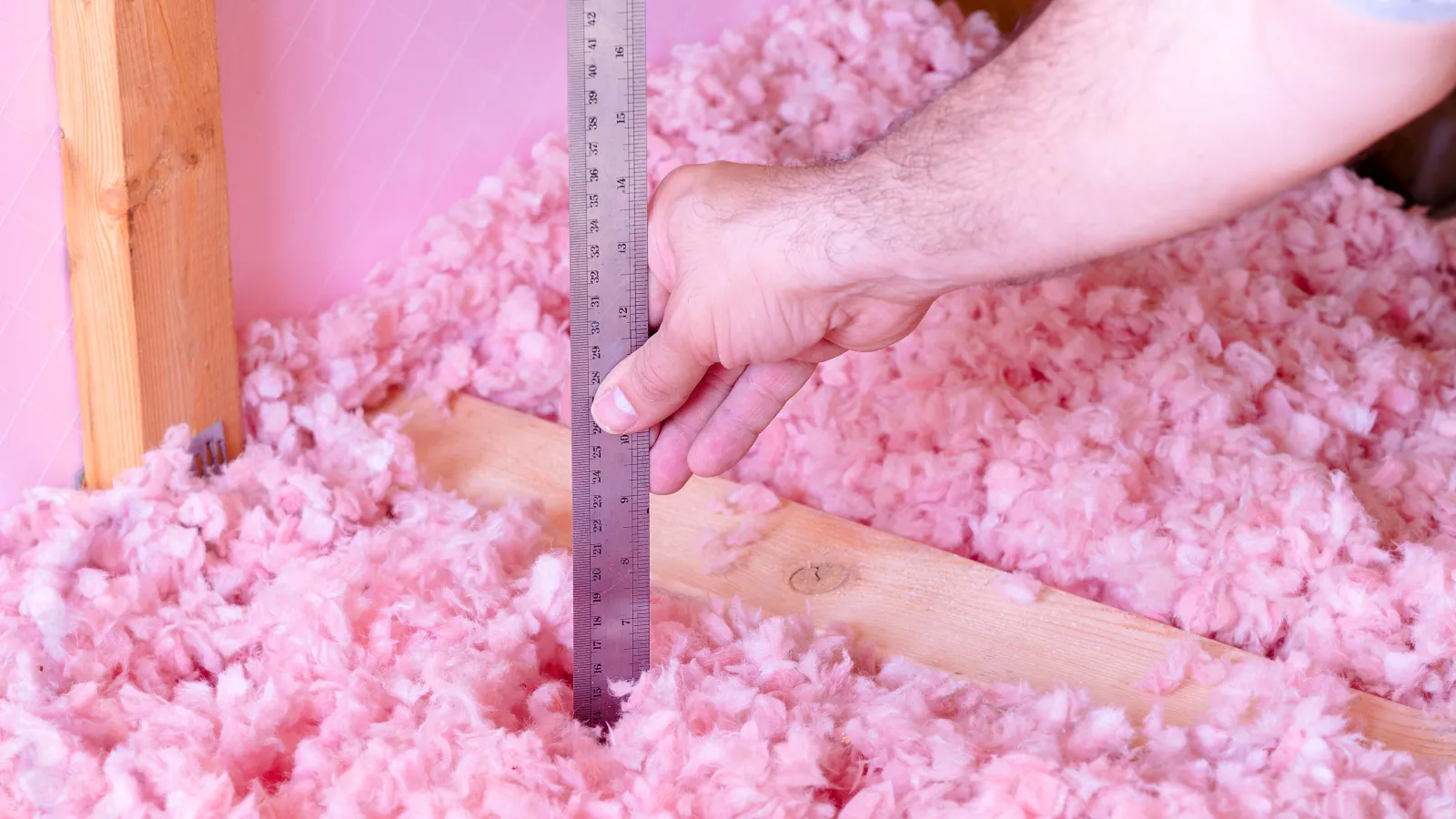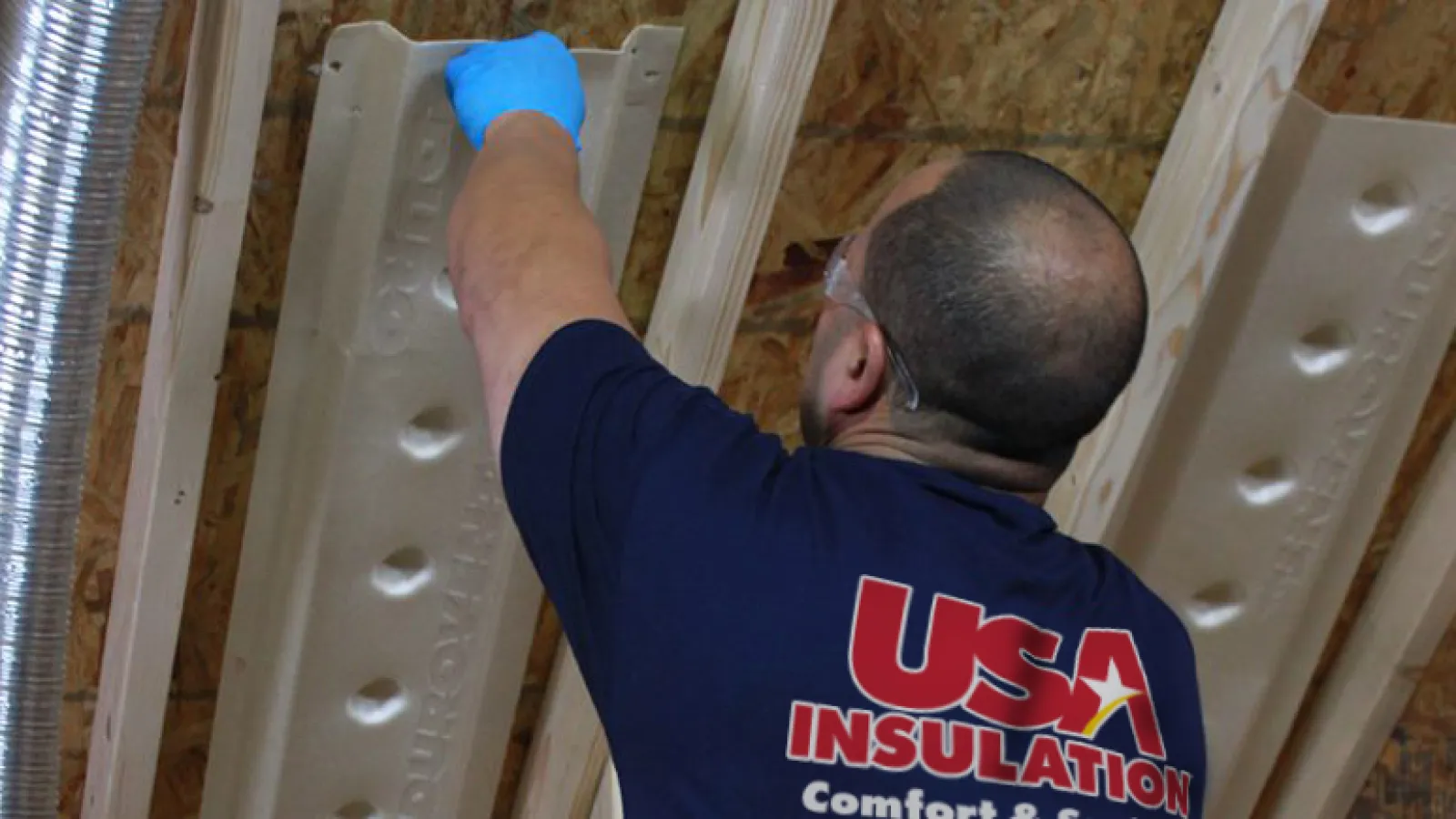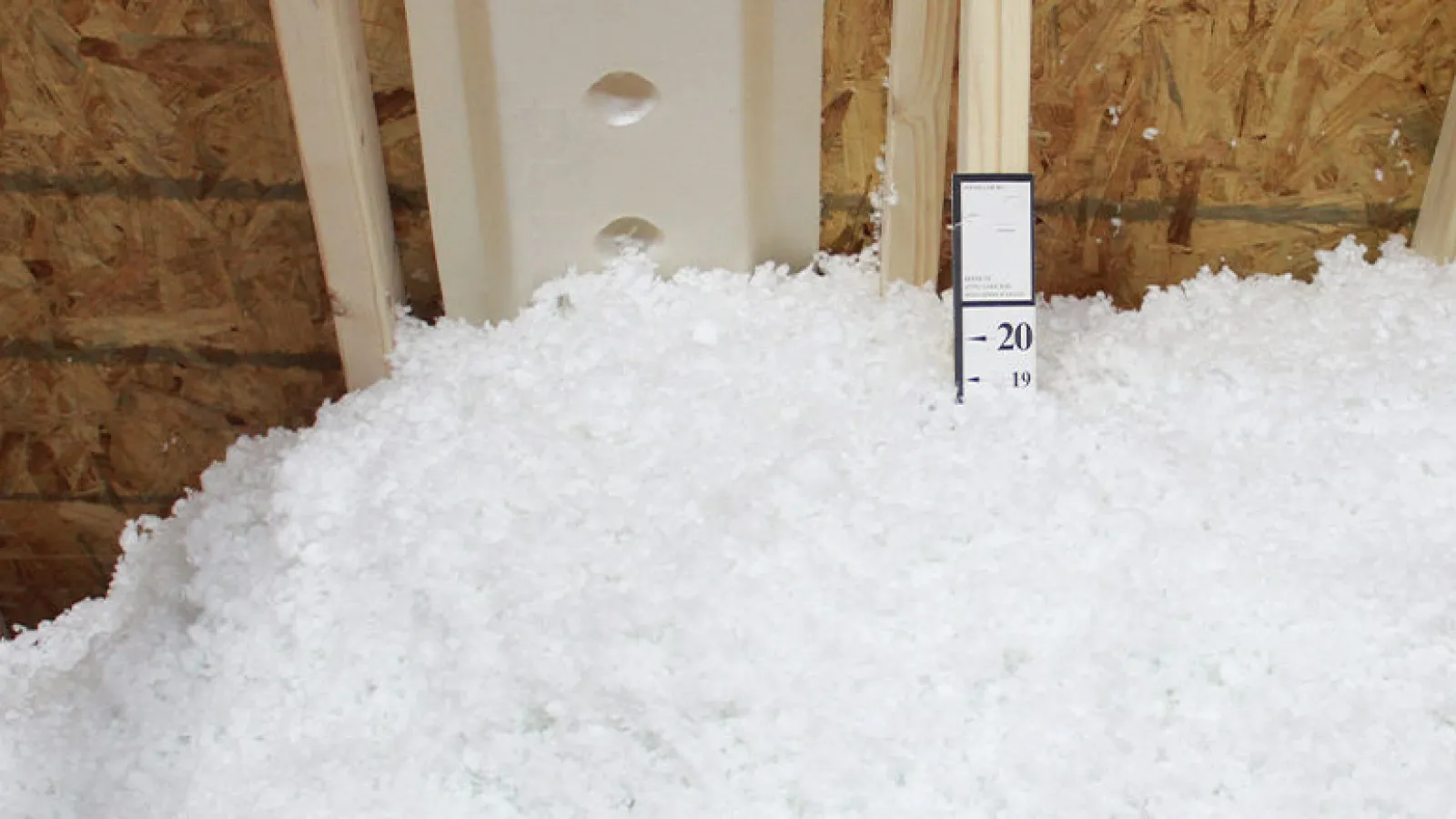
Blown-In Attic Insulation Installation Service
Blown-In Attic insulation is vital to
your home’s comfort.
Attics are often the most insufficiently insulated part of a home. When your attic is not properly insulated and ventilated, you can lose conditioned air quickly, making your home more difficult - and more expensive - to keep comfortable during the winter as well as the summer. In addition to letting heat escape during the cold winter months, a poorly insulated attic is a major contributing factor in the formation of ice dams, icicles, and mold growth, which can be both a health and safety hazard for your family and your property.
The U.S. Department of Energy recommends homeowners have a certain depth of blown-in insulation in their attics. The amount recommended varies by climate zones. If your attic's insulation depth is below the recommended level, contact our home insulation experts.
